Max Mutchnick is a big Queerty reader. “I feel like it’s my gay People Magazine,” the Will & Grace creator admits. He’s such a fan that when the influential NBC sitcom returned last month after 11 years, Mutchnick included a reference to the site in the premiere. “That was just for me, to hear Grace talk about that website that I look at every night when I go home.”
The show is as fun and fizzy as it always was, but Mutchnick and co-creator David Kohan aren’t shy about taking on tough issues. The premiere episode was a savage send-up of the Trump White House, and the latest took on gay “conversion therapy.”
Related: Will & Grace Creator Max Mutchnick: (Bad) Gay Actors Still Not Welcome In Hollywood
Queerty got on the phone with Mutchnick earlier this week to talk about the second coming of Will & Grace, Mike Pence and whether it’s important for gay actors to play gay roles.
How about we take this to the next level?
Our newsletter is like a refreshing cocktail (or mocktail) of LGBTQ+ entertainment and pop culture, served up with a side of eye-candy.
Whose idea was it to address gay conversion “therapy” in a half-hour sitcom?
We—David [Kohan] and I—had it in the basket of the episodes that we knew we wanted to do when we realized we were coming back. This was one of the episodes we knew we were going to do. For us, serious subjects are never a reason to not write a comedy around them. There are certain things that you shouldn’t write about, but this is not one of them. And we knew there was a story we could tell and we could put it inside the architecture of this show.
Of course, the way you do that is by making Jack a grandfather. How did Sean Hayes feel about that?
Oh, you know, Sean is the least neurotic actors that I’ve ever worked with. Actually, I have to rescind that statement: Sean is on the lower side of neurotic. Age is not an issue for him, and this was the right way to tell the story and this was the right way to get Will and Jack inside a conversion therapy camp, which I think are like modern day torture camps. The fact that they still exist and the fact that we have a vice president in the White House who has endorsed this method of “therapy”—and I say “therapy” in quotes because it’s not a therapy, I only view it as a form of torture.
Have you read that New Yorker piece on Mike Pence?
I have. Yes, I have. So when people have asked us, Is the show going to be timely? I certainly didn’t know that The New Yorker article was going to be written, but I knew when we wrote this story that we had a vice president that felt the way that Mike Pence feels, and I knew that this would be a relevant area for us to be writing to. But I never thought it would be this relevant.
Back to Jack as a grandpa. I’m curious about the way the new season is going to address gay men aging, that’s not something we’ve really seen much on TV. When the show was first on the air, we had lost so many gay men to the AIDS crisis that there really wasn’t a generation of gay men of a certain age. Now the generation that came after is getting older.
I think it’s the same way that I’m treating myself: with as much forgiveness and grace as I possibly can, and with as much humor as I can. I feel like David and I are still writing about a world that we know and a world that I live in and am an active participant in. It feels as if I’m writing about the stuff that I know and I don’t have any particular plan other than I’m gonna take it the same way that I take my life, which is one day at a time—except I drink.
What’s it like writing the show again after all these years? Are there things you can say and do now that you weren’t able to do in the original run?
I don’t know about anything other than what my own personal experience is of walking through the world. So if I start thinking too much outside of my own experience, I think I’ll get myself into trouble. So I’ll put it to you this way: in the last 11 years, I have gotten that much more comfortable in my skin. And so I am that much more accepting, but I also feel like I’m that much more accepted. So I’m doing a better job of being me, so I think the characters are doing a better job of being themselves. But there’s nothing special about my experience. If you’re not living in an oppressed environment, it’s possible to be a gay man or woman in 2017 and grow and to be embraced and loved.
Related: Which “Will & Grace star openly regrets appearing with Megyn Kelly?
Well just some of the things the characters have joked about in the first couple episodes, terms they’ve used like twinks and bears and Grindr, Grace even mentions Queerty—these are things that are part of gay men’s lives that I’m not sure a mainstream audience would have gotten ten years ago.
Yeah, Buzzfeed is available to everybody, you know? So is the Huffington Post. I believe that everybody’s getting hit. I don’t think that our language is rarefied, and words that we may use on the show, if you hadn’t heard them before, you understand them in real time. If you didn’t know what Grindr was before you saw the first episode of the show, you do now. You see a guy, a gay man of a certain age, on his phone looking for love in all the wrong places, and he basically explains it inside the joke.
Obviously, you couldn’t do this show without Eric McCormack, but I’m curious about your thoughts on having gay roles played by straight actors, especially when out actors still struggle to get any type of role.
Um…I feel like this question is a set-up. There’s no good answer for me. Honey, I think we’re on the same side, but I…
It’s not a set-up. I think it’s a conversation worth having. I think we’ve established that it’s inappropriate to give a transgender role to a non-trans actor when there are so many trans actors who struggle to find work. So, why is it ok to cast a straight actor in a gay role when just being out can hurt an actor’s chances of being cast in any role. Do you see what I’m saying?
Well, I’ll say this: It’s very tricky. I understand exactly the dilemma. But I’m also of the mind that the representation, if it’s a good one as is the case with Will Truman, there’s a greater good that comes of it, ok? But that doesn’t mean that I’m deaf to the real problem of trans actors and actresses specifically. With gay actors and gay actresses—that one’s a tougher call. But I do believe that if the character is a good character, and the character is and enlightened character, it is an art form and the actor needs to be able to just play it authentically. It’s better in the long run to have good representation on the air than it is to not tell the story because you couldn’t find an out gay actor to play whatever the part is.
I’m sure you’ve kept up with LGBTQ representation on TV. Over the last decade, shows like The New Normal and Looking ended prematurely. Why do you think these LGBT shows have struggled to find an audience in recent years?
There haven’t been good characters. There aren’t good scripts with good gay characters in them. And I don’t think that there’s any resistance to it. I just think that it hasn’t happened. Looking went off the air because it wasn’t getting eyeballs and it wasn’t getting eyeballs because it wasn’t good enough. I watched every episode and I am a fan of Andrew Haigh and I loved Weekend, ok? The show didn’t make for great television, and that’s why it didn’t stay on the air. HBO’s job was not to keep the show on the air because they wanted to do them a favor. They had to keep the show on the air because there were compelling stories that were being told every week that a large audience wanted to see, and I don’t think that that’s happening enough. That show should have been a lot better. I would love nothing more than for that show to still be on the air. But the episodes weren’t compelling enough. It has absolutely nothing to do with gay, straight or otherwise.
Well, where are those compelling scripts about LGBTQ people? Why aren’t more of them making it to HBO or Netflix?
Oh, I think they’re there! Look at the Armie Hammer movie that’s coming out, Call Me By Your Name. I’m excited about that. It looks like great storytelling. It’s not obvious, it’s surprising and that director [Luca Guadagnino] is spectacular, and it’s going to work. Nobody gives a shit about our gay shenanigans over here. People watch Will & Grace because it’s funny and they like the four [characters], and they like those relationships, and they either have that relationship or they want to have that relationship. And they project things onto the show. So that’s why we’ve had some staying power.
But if we stopped being funny, we won’t be on TV anymore.




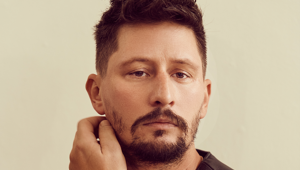
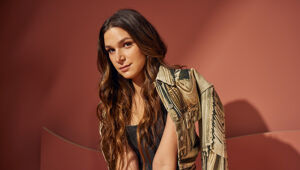
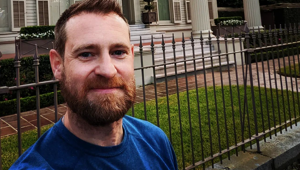
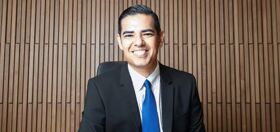


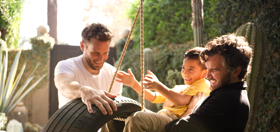
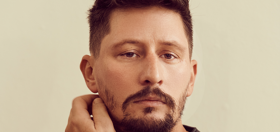



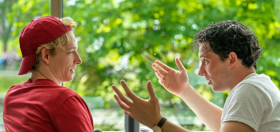

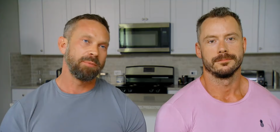




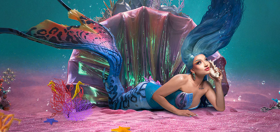
MacAdvisor
My mother and I used to watch the old W&G. She had Alzheimers and was dying. I spent as much time as a could with her and she loved W&G. At times, I think she thought Will was my boyfriend. She passed away in 2001 and I missed her greatly. Watching W&G after she passed made me feel like she was still with me. W&G was like comfort food. By the time the series ended in 2005, I had pretty much healed. I still miss her, but the loss doesn’t feel as heavy. Now my father has passed away. He was very gay supportive (back in mumble, mumble, back when Milk was still alive, when I came out, he was the football coach at the local JC. After I told him, he set me up with one of his gay football players. That is how accepting he was way back then and he had been a DI in the Marines). We didn’t watch W&G together, but seeing the show again feels like comfort TV again. The show is there once again to help me through my loss.
I wish the show’s characters had better relationships with their parents. I loved mine and they showed me everyday how much they loved me. They were wonderful and I am very proud of them. TV characters always seem to have these difficult parent relationships. Yes, some kids do have real problems with their parents and their parents gave them real reason to, but many of us also had great, loving parents.
Still, thank you, W&G, for coming back. You are like hot chocolate, those silly cinnamon rolls from the explode open roll, the smell of pine needles in December, a soft from wear t-shirt, and a good hug.
kimbass444
I found a great site that focuses on stay at home mom’s complete guide to gaining a serious amount of money in very little time. While being able to earn an passive income staying home with your kids. If you are someone who needs more money and has some spare time, this site is perfect for you. Take a look at…
662522
…..????????????Trump”s New Opprunuties See Here
girldownunder
What a lovely memory of your mother. With mine, it was Sonny & Cher Show- lol. You’re a lucky fellow to have had that perfect, unconditional love.
Condolences to you.
xx
HMFan
I enjoyed the episode. While I understand it’s a sitcom with a 30-minute run time (which includes WAAAAAAY too many commercials), life’s problems don’t wrap themselves up like this with everyone living happily ever after. Despite its severely truncated story arc, I guess if it helps to open the door or give families something to discuss, that’s good. If W&G can be just one or two raindrops in the reservoir that finally breaks the dam of LGBT prejudice, then more power to Mutchnick and Kohan (and Will, Grace, Jack, and Karen).
kofender
Can we talk about last night’s episode for a moment? Okay, Karen throwing the paper towels was brilliantly funny. Great. But I was in tears last night at the end of the episode. Sure it was funny, but it was far more moving and poignant than I expected. The subject of gay conversion was handled so sensitively within the context of the characters I couldn’t help but be moved. Best episode of the reboot so far. Really. So far as Jack being a grandfather, so what? Out here in old gay man paradise (a/k/a Palm Springs) I meet plenty of gay men who are grandfathers. It happens. We age. But we survived the 1980s, too.
geb1966
What made it such a powerful episode to me was that it tackled this issue in a serious manner without losing it’s trademark humor. I, too, was in tears by the end. I even watched it twice and haven’t deleted it from my dvr. Jane Lynch and Andrew Rannells were great as the conversion camp counselors, too.
He BGB
Sitcoms today like to have 2 plots going on at once. In this case I could have done without the Grace and Karen and Puerto Rican guy plot but Debra and Meghan would have had a hissy. I thought the Conversion plot was brilliant and the casting wow ! They should have used the whole time for it. The pajama position made me laugh because that’s the way I sat on the sofa and my sister called me Cleopatra.
My2Cents
Welcome back Will & Grace! I was hopeful this comeback would not be like a Very Brady Christmas. I was hoping it would be fresh and relavent. And I’m glad to say it was all I had hoped for. This week’s episode was brilliant writing. Kudos!
He BGB
I noticed that Will is being very affectionate with Jack in the new series like a big brother. In reality to be friends this long they should be affectionate.
Jaxton
All men have homosexual impulses – all. And, yes, it is possible to suppress certain impulses through will. People suppress their impulses all the time.
Gay identity politics has harmed men in general. It has created strict new rules that limit and restrain male sexuality to the “you’re either gay or straight” trope.
Immense harm has been done to men in general. In a way, gay identity politics has dis-empowered men and curtailed their freedoms.
DCguy
Brian if you’re going to switch screenames you should change up your cut and paste little self hatred screeds. You’ve been posting the exact same thing for years.
baggins435
I’m a gay man in my 50s. I don’t watch a show just because it has gay characters or a “gay” theme anymore than I watch because the main character is a white male. I watch a show because it is entertaining to me. I never watched Seinfeld, or Friends, OR Will and Grace, and I don’t watch Drag Race. I just don’t like them. Likewise, I can’t see casting an actor for a gay role just because they are gay. I want to see characters in TV and movies where the person just happens to be gay, not where being gay is their raison d’etre. We should be past the days of the token flaming queen representing our diverse community and playing to the right’s stereotypes. I get excited about a new power tool rather than “Jaymes Limpdick’s” new clothing line, and judging by the number of gay guys working at the local Homo Depot, I’m hardly alone. “Iffen I were God” there would be a show with a gay main character who had a garage full of power and mechanic’s tools and who didn’t give a flying “F” about fashion or celebrities. But, I’m NOT God, so there isn’t.
DCguy
Awww, how adorable, a new account comes on to attack anything that “Seems Gay” and tries to unload all of his self-hating baggage.
Go bore somebody else with your protestations about how butch you are. But we see you queen.
Heywood Jablowme
The writing is as good as ever on W&G 2.0! Very fun.
Mutchnick is right that “there haven’t been good characters” on dramas like “Looking,” but that’s a case of apples vs. oranges. Sitcom characters are comical exaggerations by nature; they don’t necessarily have to be all that *believable.* In real life you don’t have four friends (or frenemies) babbling in rat-a-tat-tat jokes all the time, or even for a half hour at a time.
Characters in a drama aren’t always *believable* either but the situation must be. (“Looking” had neither!) A drama needs action such as crime, war, fires, or at least political/business dirty tricks. In the gay male world there WAS plenty of drama with the AIDS crisis in the ’80s, but that’s history, before a lot of viewers were born. Or extreme closet cases like Roy Cohn or Liberace (both also AIDS stories, hmm); they just don’t make closet cases like that anymore, fortunately.
Yeah, we talk a lot about the stereotype of gay men having a lot of “drama,” but do we really? Boyfriend problems, parents disliking boyfriends, boyfriends disliking parents and friends… yawn, it’s just not that interesting as drama nowadays. Can still be fun as comedy, though!
Jaxton
Here’s a positive suggestion for Max Mutchnik: write a character who dates women and men. Make him completely relaxed. Make him be totally normal as he switches from dating men to dating women. Don’t make it a gay/straight issue.
There is such a fear of bisexual male characters on American TV, it’s the new taboo. Liberalism has never really accepted male bisexuality, and it shows.
Giuseppe
I think this episode should’ve been two parts, while I appreciate the conversion storyline and it was nice seeing Jack’s son again, this got wrapped up TOO quickly and the sub-plot with Karen and Grace was pointless and unnecessary filler. I’m not sure if the writing has fallen off in 11yrs or if it was just never a home run, the show is a chuckle for me, one or two lines at most every episode stay with me. Meh.
Kangol
I enjoyed the episode and have watched and like the entire reboot season so far. I’d always thought that Sean Hayes (Jack) is a brilliant physical comedian, but seeing him in the new run really underscores this for me. The fake ex-gay performances by Jane Lynch and Andrew Rannells were hilarious.
The Karen-Grace storyline involving sexual harassment of the Puerto Rican employee was really crass and distasteful, especially given the larger context we’re in right now around sexual harassment of women, racism, etc., but Will & Grace has always pushed against the grain, particularly with Karen’s laughably awful character. But come on, folks, let’s think about this stuff a little more. It’s 2017.